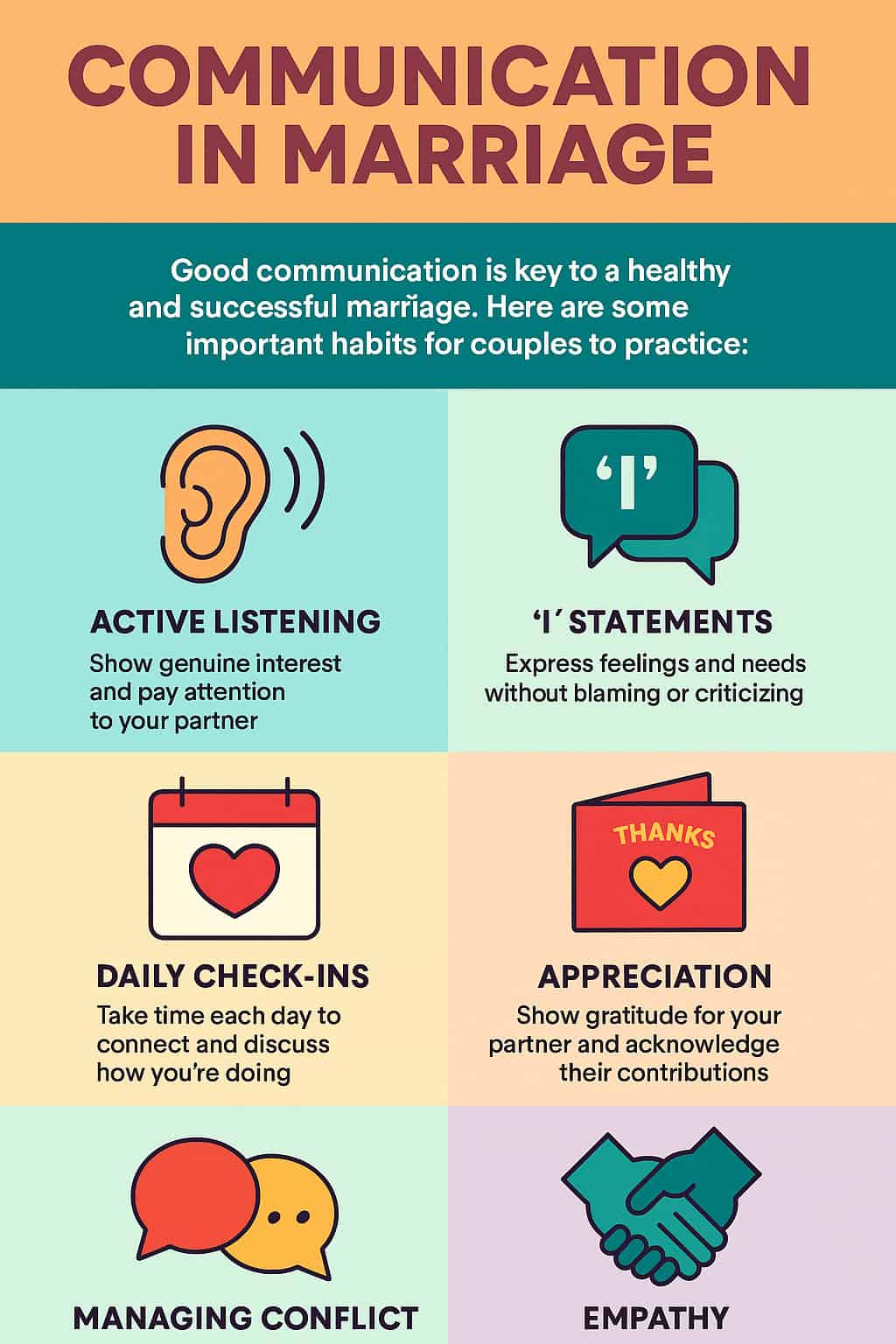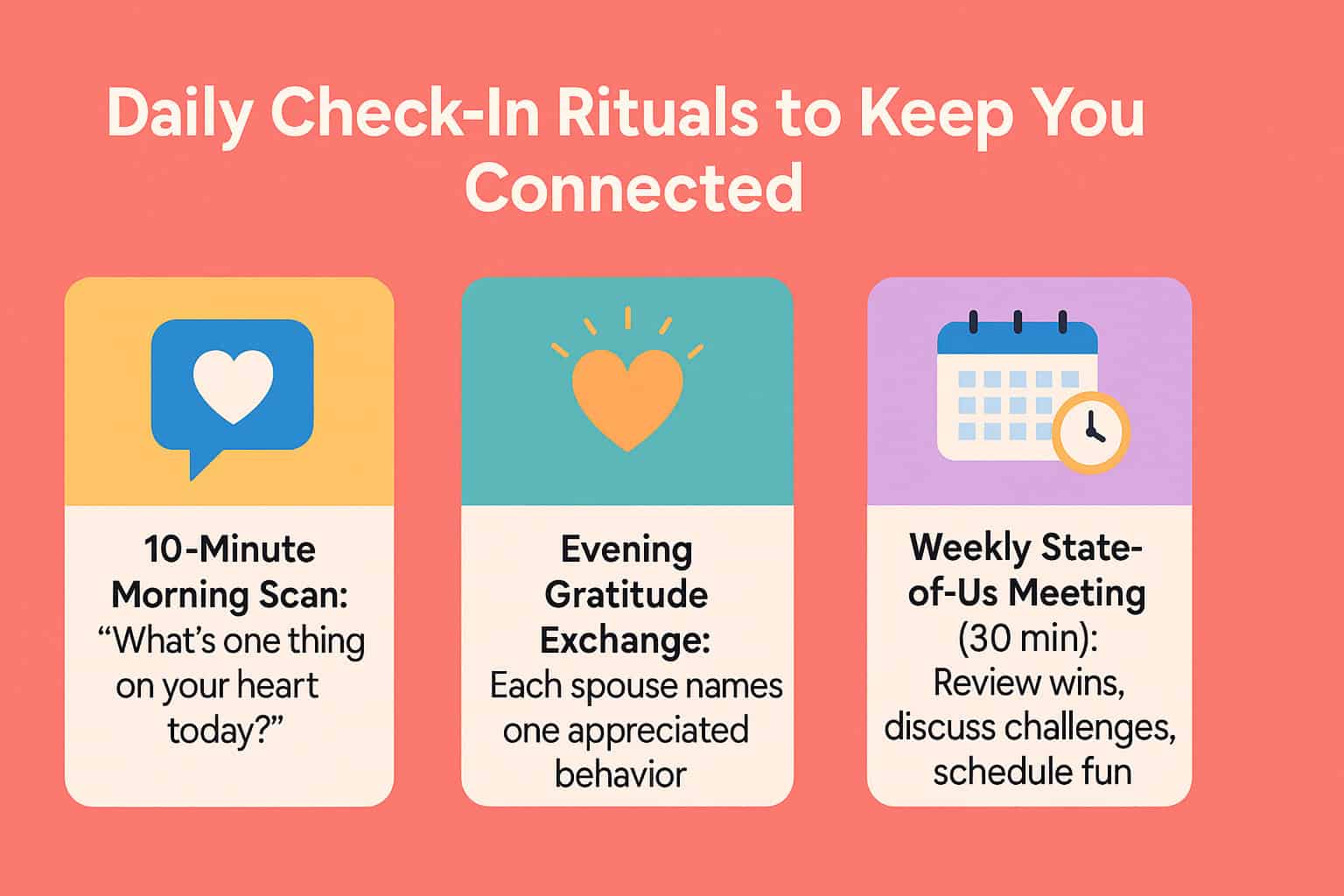
Why Communication Breaks Down in Marriage.
- Escalation loop: Stress, work pressure, parenting demands, and unresolved resentment cause short tempers and “kitchen-sink” fights.
- Mind-reading myths: We assume our partner should just know what we need.
- Fight-flight patterns: One spouse shuts down, the other pursues, leaving both unheard.
- Stats to consider: Meta-analyses show 70–80% of couples report better relationship satisfaction after structured therapy.

How a Neutral Counsellor Re-Shapes the Conversation.
Creating a “safe room”.
A certified couples counsellor:
- Sets time-outs on harsh language.
- Ensures each voice gets equal airtime.
- Teaches evidence-based skills (Gottman, EFT, Solution-Focused).
Think of your counsellor as a referee who also hands you the playbook.
Shifting from “You vs. Me” to “Us vs. The Problem”
- Reframes blame as shared problem-solving.
- Tracks progress with clear goals and between-session homework.
Skill: Active Listening & “I” Statements
Old habit: “You never listen!”
Upgraded habit: “I feel dismissed when I’m interrupted.”
Why it works: Focuses on experience, not accusation.
Old habit: Defensive comeback
Upgraded habit: “Can you reflect what you heard?”
Why it works: Slows the pace, confirms understanding.
Try this 3-step loop tonight:
- Speaker: Share one issue for two minutes, no blaming.
- Listener: Paraphrase, then ask, “Did I get that right?”
- Swap roles.
Do this every day and watch conflict intensity drop.

Daily Check-In Rituals to Keep You Connected.
- 10-Minute Morning Scan: “What’s one thing on your heart today?”
- Evening Gratitude Exchange: Each spouse names one appreciated behaviour.
- Weekly State-of-Us Meeting (30 min): Review wins, discuss challenges, schedule fun.
Couples who practise short structured check-ins show higher emotional intimacy and lower cortisol levels over time.
From Fighting to Productive Dialogue: What a Session Looks Like.
- Assessment (Session 1): You both map conflict cycles.
- Skill Building (Sessions 2-5): Role-play tough conversations with counsellor coaching.
- Real-Life Application (Sessions 6-8): Bring in a current disagreement; turn it into a joint plan
- Maintenance (Quarterly Tune-ups): Prevent relapse; refine rituals.
Signs Your Communication is Getting Healthier.
- Arguments stay on one topic and end in under 20 minutes.
- You hear feelings beneath words, and respond to those feelings.
- Daily check-ins feel natural (not forced).
- Body language softens: more eye contact, gentle tone, relaxed posture.
If three or more ring true, you’re well on your way.

Next Steps.
We’ve covered how communication in marriage can evolve from heated exchanges to empathetic dialogue through active listening, daily rituals, and the steady guidance of a neutral counsellor. Are you ready to turn conflict into connection?
Click here to book your 15-minute complimentary phone consultation and take the first step toward a healthier, happier partnership.
Do You Need Couples Counselling?
Take this quick quiz to see if couples counselling at AERCS could benefit you!










